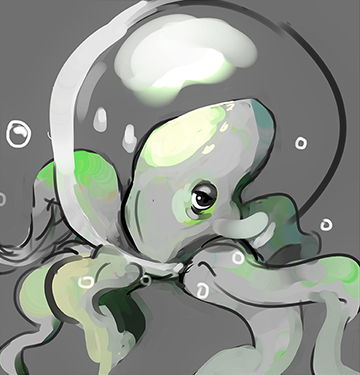Oceans Not Space

Humans explore. It’s what we’ve done and it’s what we will always do. We give our utmost efforts to discover what is just around the corner. It is our nature. Finding new places and things furthers us as a species. We become smarter and more creative. New technology is introduced to find what we’re searching for. New thoughts are inspired by the need for a more efficient and safer way to reach the beyond. But what should we explore? Recently, our best scientists have been reaching for the stars. We’ve looked beyond our own soil in order to find others. We’ve ignored our own secrets and treasures. We’ve abused the very world that helped to create our existence in the first place. Our species now knows more about the infinite amount of stars that float around in the universe then the ground you sit on while reading this.
We are a very lucky species. Billions of years and several mass extinction events and now we reside as the most advanced species to have ever inhabited a beautiful planet we call Earth. We’ve expanded to the majority of the planet and established many different civilizations. Humans have made an impact that will be left for millions of years to come, even if we were all to perish this very second.
Yet we choose to ignore the environments we live in. We leave most of our massive oceans unexplored. There are pieces of land that we have never set foot on, because we’d rather set foot on our moon. We like to look up, and not down to our own feet. And even though we look up, we look too far up. Little is known about how our weather acts and is formed. We can only accurately tell the present state of our climate.
Our weather doesn’t just affect us. It affects all of the species that coexist with us humans. It affects the millions of species that we have yet to document and research. Some amazing creatures and plants have come and gone without our acknowledgement. And we could have prevented many of those extinctions.
In our never ending search for a better world to explore, we ignored that ours has yet to be fully discovered.
Every few months, research comes out informing the public of a new discovery found in the oceans and some crazy ecosystems never before known of. Each time these new species, places and even resources are found, it dramatically changes the overall mission of science. Each new thing could progress us further by providing new ideas for research, which will push our knowledge to expand greatly.
But if furthering our own knowledge is not enough motivation, then research to save the human race should be.
Around the world, events and catastrophes happen that are often out of our control. Earthquakes, eruptions, dramatic weather events and extreme climates still puzzle us to this day. Each of which pose a major threat to all human life. Why are we still sitting back and casually watching it all go down? Are we so motivated to find other forms of exo-planetary life that we will potentially throw ours completely away?
Space can wait. For however long it takes. Our own planet is calling for our attention, our own lives even. We still struggle for an all around cure to cancer. We still suffer minor and major diseases that we fail to understand in their entirety. We cannot even begin to explain the complex matter that resides inside your head, the matter that composes the thoughts to explore space, oceans and the matter that fabricates this very column.
Oceans are just a scratch on the surface of what is left to explore under our own atmosphere. The idea to explore oceans and not space is just a topic wagon we ride along to view our other now major areas that lack significant knowledge. Rockets are cool and fascinating. But let us use the technology to explore deeper into our own world and lives. Maybe then we could find a true destination to search for, or possibly many of the answers we so desperately seek.

